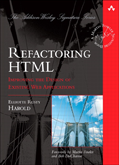Don’t Hide From Google
Friday, November 17th, 2006Here’s a robots.txt file from a company whose software I’m currently evaluating:
User-agent: *
Disallow: /cgi/
Disallow: /cgi-bin/
Disallow: /mantis/
Disallow: /forum/
Disallow: /stats/
Disallow: /synk/unreg.html
Disallow: /synk/de/unreg.html
Disallow: /synk/fr/unreg.html
Disallow: /synk/it/unreg.html
Disallow: /synk/email.psn
Disallow: /synk/help/This is from a small company whose main product is experiencing solid growth. In fact, they are growing so fast, they are having trouble responding to support e-mails and are consequently requesting that users check the FAQ list and read the forums before sending them e-mail. Keeping that in mind, can you tell what’s wrong with this robots.txt?
(more…)
